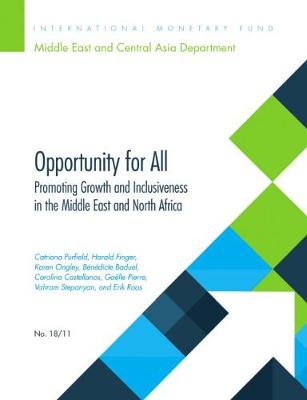Policymakers in the Middle East and North Africa (MENA) region are at a critical juncture. Regional growth has been uneven since the global financial crisis due to a range of factors, resulting in stagnant incomes, inadequate job opportunities (particularly for young people and women), and ongoing frustrations over the quality and accessibility of public services. This paper seeks to pave the way for further operationalizing the inclusive growth agenda by exploring the key issues the MENA region faces in its efforts to promote inclusive growth. Given that many reforms are already underway, the intention of the paper is to chart a future course for policies to enhance inclusive growth, and lays out the central facts for understanding the primary challenges countries in the region must address to create more jobs, lift growth, and make growth inclusive. It highlights various obstacles such as the insufficient level of private-sector job creation, the small size of the private sector, and the severe obstacles the region's large pool of young people and women face in finding jobs.The paper also proposes several policy priorities aimed at broadening access to opportunity. These include improvements in governance, expansion of access to finance, expanding the coverage and generosity of social safety nets, especially to benefit the poor, and policies specifically targeted to enable excluded groups like youth, women, refugees, and rural populations overcome the obstacles they face. Finally, the issues of government performance and accountability are explored in greater depth.The paper makes the case for creating space for higher infrastructure and social spending by reorienting spending away from generalized subsidies, by tackling wastage and corruption, and by widening tax bases and making them more equitable.
- ISBN10 1484361172
- ISBN13 9781484361177
- Publish Date 23 November 2018
- Publish Status Active
- Publish Country GB
- Imprint International Monetary Fund (IMF)
- Format Paperback
- Pages 121
- Language English
